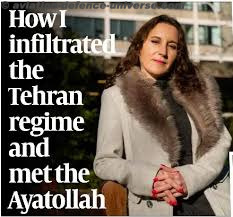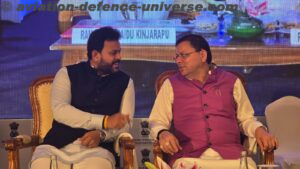New Delhi. 12 August 2016. Home Minister Rajnath Singh said that the Government has taken various steps to improve the quality of investigation. He said that in case of general crime, the Government has revamped the Crime and Criminal Tracking Network Systems (CCTNS) project for complete computerization of the working of police and extended it to court, jail, prosecution and forensic laboratories. Expressing his concern for women safety, he said that the Government is concerned about the crime against women and safety of women. To investigate the crime against women, dedicated Investigative Units on Crime against Women (IUCAW) are being established in 564 districts of India. He said that in these units, one- third of investigators will be women and funds will be made available by Central and State Governments, on 50-50 partnership basis. The Home Minister said that Central Government will spend Rs 324 crore in next 2 years on these units.
Home Minister Rajnath Singh inaugurated the 1st National Conference of Investigating Agencies. The two day conference is being organized by BPR&D in coordination with NIA.
Inaugurating the conference earlier the day, Rajnath Singh said that investigation agencies are facing many challenges in the investigation of traditional and modern crimes. He said that this conference is an opportunity to discuss these challenges and ways to overcome them. He expressed hope that this conference will discuss ways to improve quality of investigation especially for economic and organized crimes and related legal issues.
The conference is being attended by more than 100 delegates from States/ UTs/ CPOs who are working in investigation agencies such as Crime branches/ EOW/ STF/ etc. A large number of police officers from the CPOs/CAPFs and other important investigating agencies like ED/ CBI/ SFIO/ FIU etc. also attended the conference.
Three sessions were held on the first day of the conference. The first session was held on “Combating Economic and Organized Crime”. During the session, Karnal Singh, Director, Enforcement Directorate spoke on Coordination between ED and other Investigating Agencies. Shri Pankaj Kumar Mishra, Director, FIU spoke on “Role/ Functions of FIU and Coordination of FIU with Investigation Agencies” and Shri Rajeev Rai Bhatnagar, DG, NCB spoke on “Indian Drug Enforcement Regime and Role of Investigation Agencies”.
The second sessions was held on “Digital & Technology Driven Crimes”. Dr. Arvind Gupta, Deputy NSA was the Chairman of the session and delivered the key note address. During this session, Gulshan Rai, National Cyber Security Coordinator spoke on “Responding to Cyber Crime- the strategic responses”. M.M. Oberoi, Director Interpol spoke on “Combating Cyber Crime- Learning from International Experience” and Muktesh Chander, DG, Goa spoke on “Cybercrime and cyber threats to internal security”.
The third session was held on Ideas from States. Pankaj Kumar Singh, ADG, CID CB, Rajasthan spoke on “Cutting edge technologies and their application to investigation”. M.A. Ganapathy, DGP, Uttaranchal spoke on “Database and Crime Investigation”. Shatrujeet Kapur, ADG (Crime), Haryana spoke on “Challenges in Implementation of JJ Act” and Shri CDT Rao spoke on “Crime data analytics system”.
All the participant delegates as well as observers participated actively in very lively discussions that followed the presentation by eminent speakers.
On the second day of the conference tomorrow, sessions on the themes legal Issues relating to Investigation and “Terrorist Crime Investigation: NIA Experience” will be held. Justice Dr Balbir Singh Chauhan, Chairman of the 21st Law Commission of India will chair the session on “Legal issues faced by Delhi Police and deliver the Keynote address. The valedictory address for the conference will be delivered by Justice Supreme Court of India, U U Lalit tomorrow.
Rajnath Singh said that investigation agencies are facing many challenges in the investigation of traditional and modern crimes. He said that this conference is an opportunity to discuss these challenges and ways to overcome them. He expressed hope that this conference will discuss ways to improve quality of investigation especially for economic and organized crimes and related legal issues.
The Home Minister said that the crime is an act which is committed by persons with perverted mind or in adverse circumstances. He emphasised whatever the circumstances under which a crime is committed, crime cannot be accepted as legitimate by any civilized society. He said that crime control has basically two dimensions: prevention and detection. Prevention is the best remedy since crime is nipped in the bud. However once the crime is committed, quality of investigation is the foundation on which detection is based, he added.
Rajnath Singh said that as per the National Crime Records Bureau, the conviction rate of the crimes is very low, that is why Quality of investigation is crucial in ensuring justice for the victims and punishment for the offender. He said that our thrust should be on improving investigation at police station level. Apart from the quality of investigation at police station level, we also have to ensure proper courtesy to the victims and witnesses, he emphasized. He said that convenience of victims and witnesses must be taken into account when calling them for investigation. He also said that the victims should be kept informed about the progress of investigation from time to time.
Emphasizing on the need for bringing improvement in scientific investigation, the Home Minister said that the Central Government is spending Rs.279.90 crore under 12th Five Year Plan for upgradation and modernization of existing three Central Forensic Science Laboratories (CFSL) located at Chandigarh, Hyderabad and Kolkata and opening of three new CFSL at Pune, Bhopal and Guwahati. In these labs Digital Forensic Division (Forensic Electronics), Forensics D.N.A Division, Forensic Engineering Division, Forensic Intelligence Division, Forensic Psychology Division, Narcotics Drug Division and Government Examiner of Question Documents (GEQD) will be created. Further to impart training on investigation, including terrorist crime and blast cases, two new Central Detective Training Schools at Ghaziabad and Jaipur have been opened apart from existing three Central Detective Training Schools located at Chandigarh, Kolkata and Hyderabad.
Expressing deep concern over the increasing incidents of cyber crime cases in the country, Rajnath Singh said that the Central Government has established Indian Cyber Crime Coordination Center (I4C) at National Level to deal with all types of cyber crime. The I4C can be utilized for investigation of Cyber-Crime including Child Pornography and Online Abuse. One of the priorities of I4C will be to thwart attempts by international cyber gangs to penetrate Indian Networks and hack them. I4C will act a nodal point in fight against Cyber Crime and also as Early Warning System for Law Enforcement Agencies. It will also set up a platform for victims to lodge Cyber Crime complaints. I4C will also provide all necessary assistance to CBI and State police on Cyber Crime related issue. He said that due to widespread use of internet based Social Media by terrorists, we are facing new threats. To face these challenges, the present capabilities of specialized organization like Indian Computer Emergency Response Team (CERT-IN), Centre for Development of Advanced Computing (C-DAC) need to be strengthened.
The Union Home Minister said that the Government is committed to punish terrorists. The Government is working to strengthen the Unlawful Activities (Prevention) Act and the National Investigation Agency (NIA) Act. He said that the Government is also examining enactment of Mutual Legal Assistance in Criminal Matters Act to provide legal sanction for evidence obtained through Mutual Legal Assistance Treaties and remove doubts about admissibility of such evidence. He also said that during past two years, 1175 obsolete Acts and regulations have been repealed. Our challenges are increasing and to face these challenges, our Government is committed to amend or repeal old Acts and Regulations and enact new laws and regulation, if necessary.
The Home Minister said that BPR&D should conduct more research on investigation related issues including requirement of laws to solve the problems of investigation. He expressed hope that this will be a regular conference and it will become a milestone in raising the standards of Scientific Investigation.
On the above occasion, the Home Minister also declared award of ‘Best Investigator Medal’ to the Investigators, to improve the quality of investigation. He said that the Government may award 150-200 best investigators every year.
Delivering her welcome address, Dr M. C. Borwankar, DG, BPR&D, said that BPR&D provides high quality training and has completed about 200 research projects. She also said that best international standards should also be there in our country. She said that the outstanding investigation works should be rewarded which will work as motivation to the investigators.
Sharad Kumar, DG, National Investigation Agency (NIA), DGs of CAPFs, former DGs, DGPs of States/UTs, Central Police Organisations (CPOs) and the Heads of Crime Branches/ATS/Economic Offences Wing (EOW)/STF of States/UTs are also participating in the two-day conference.






















































































































